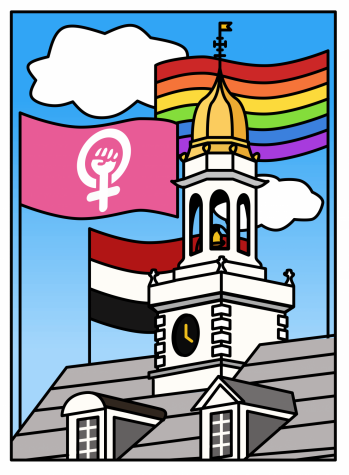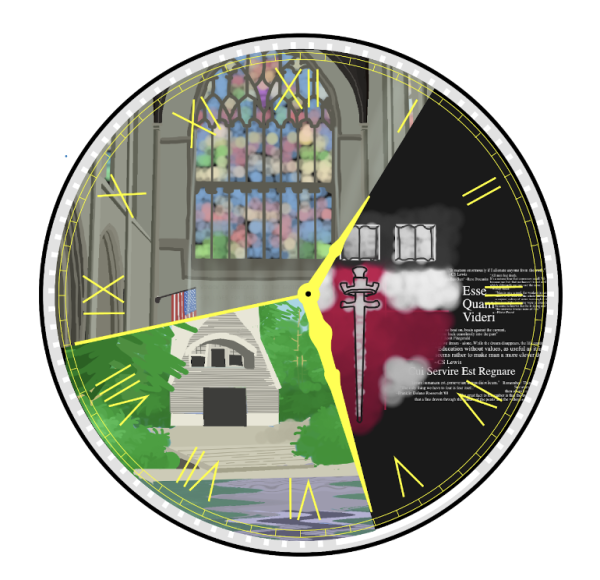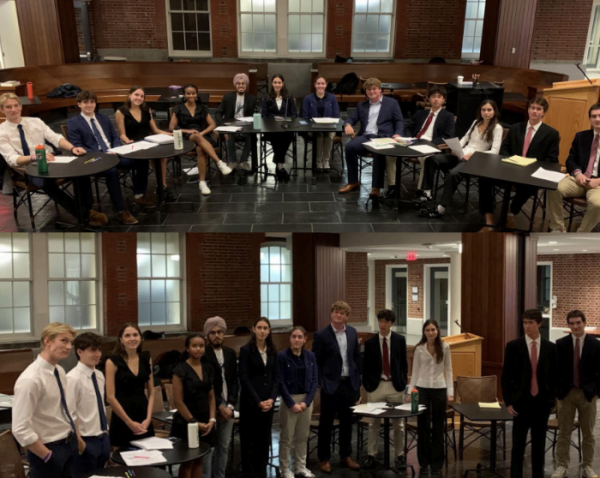New Busts to Line Schoolroom
Since 1904, the busts of George Washington, Aristotle, and other prominent historical figures have lined the walls of the Schoolroom. The busts originally reflected the all-male student body and served as role models for the boys working diligently at their desks below. However, although Groton admitted its first black student in 1952 and its first female students in 1975, there were no non-white or female figures. The Form of 2018 questioned the busts’ lack of diversity at a school that publicizes its dedication to inclusivity. Some students in this now graduated class found it unreasonable that one of the most prominent spaces on campus only reflected a fraction of the community.
Layla McDermott ‘18, Lucy Chatfield ‘18 and Josie Fulton ‘18 brought the issue to the forefront of the school’s consciousness. When asked what originally sparked her interest, Layla said, “in almost every other part of the school, the artwork was the work of the students, constantly changing and entirely reflective of the school’s community.”
The three students and other members of the form began to gather support to diversify the collection in the Schoolroom: they handed out petitions for the community to sign and focused a Groton Feminist club Chapel Talk on the importance of accurate representation.
“People had such a positive response to it, and were so willing to help with research or alumnae connections with previous Groton women that it almost happened on its own,” Layla recalled.
In the fall of 2017, Layla, Lucy, Josie, and five other sixth formers took the next step towards their goal when they met with the Trustees at a formal breakfast. The students caught the attention of the adults; after their meeting, President of the Board of Trustees Jonathan Klein agreed with the students that “the Schoolroom and other parts of the school should more visually and visibly reflect the composition of the community – students, administrators, staff and faculty.”
That said, President Klein emphasized that the Board will “focus on adding, rather than eliminating or removing” busts from the Schoolroom. “We felt it was important that our personal opinions of the merits of the existing busts be set aside,” he explained.
Current plans detail that, in approximately six months, Eleanor Roosevelt, Rosa Parks, Nelson Mandela, and Mahatma Gandhi will preside over the Schoolroom alongside the original busts. Based upon suggestions from students and faculty alike, President Klein made the final decisions concerning the four historical figures based on his belief that women and people of color should be represented. To accurately reflect their races, Klein stated the busts of Rosa Parks, Nelson Mandela, and Mahatma Gandhi will be a darker hue than the current marble replicas.
President Klein added that, in the case of Eleanor Roosevelt, there is a strong Groton connection that only stands as an added advantage; her husband, Franklin Delano Roosevelt, graduated from Groton in 1900 and served as the 32nd President of the United States from 1933-1945.
Students generally had a positive reaction to Mr. Maqubela’s announcement concerning the busts’ installation; Claire Holding ‘21 felt that they “are a visible representation of our progress.” She added that “they certainly aren’t the end of the fight, but they are a big step in the right direction.”
According to President Klein, although the Trustees will adhere to their policy of “add, don’t delete” regarding the position of controversial historical figures such as Christopher Columbus, some busts currently displayed will have to be put into storage as others are added.
In introducing the four busts, Groton strives towards a more inclusive future while maintaining its historical roots. The schoolroom, a central space on campus, will now more accurately reflect the student body as well as highlight the contributions of leaders and pioneers that history often overlooks. However, as the community continues to welcome members from all over the globe, the discussion of inclusivity will remain a priority to ensure that every student feels represented on campus.










